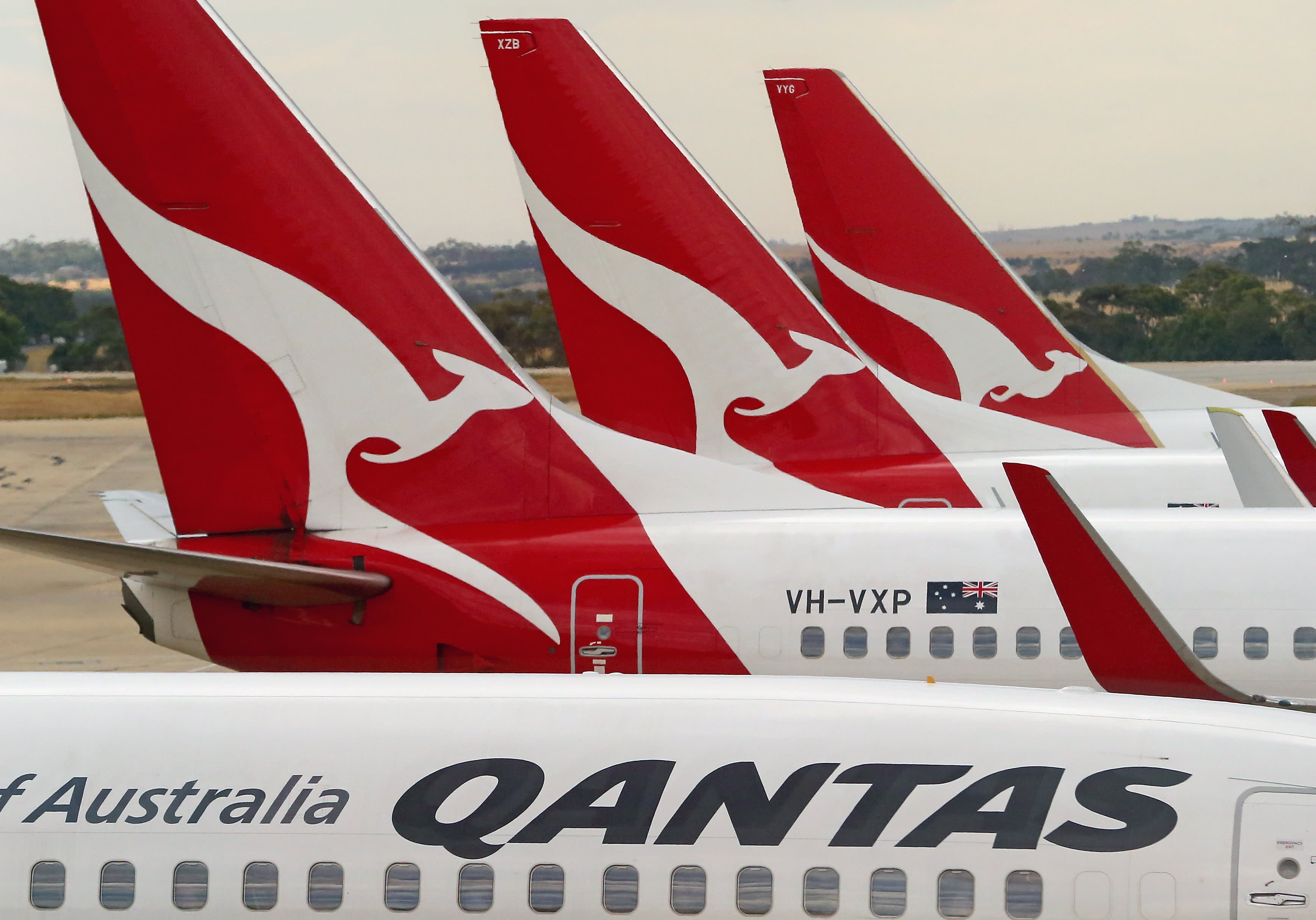Australian carrier Qantas expects international flights to the U.S., the U.K. and parts of Asia to resume by Christmas, CEO Alan Joyce said Thursday.
Since March last year, Australia has closed its borders to most foreign visitors and banned residents from leaving unless they had valid reasons.
“We know there’s huge underlying demand. People don’t want another Christmas where they are isolated from their families, let alone internationally, but [also] in Australia,” Joyce said on CNBC’s “Squawk Box Asia.”
A spike in local Covid-19 cases in recent months forced Australian states and territories to step up restrictions, including limitations on interstate travel and stay-at-home notices in high-risk areas.
Joyce said Qantas is planning its operations on the assumption that Australia’s two most populous states — New South Wales and Victoria — will lift most of their border restrictions to the rest of the country by Dec. 1.
That would be followed by an assumption that international border restrictions will ease as more Australians get vaccinated. “And, that by Christmas, we will see markets like Singapore, the U.K., Japan and the U.S. … open up as well,” he added.
Qantas has had no passenger fatalities since the dawn of the “jet era” in the 1950s.
Scott Barbour | Getty Images News | Getty Images
Vaccines are crucial
Australia’s vaccination rates are also climbing after a sluggish rollout at the start.
Information collated by online publication Our World In Data showed nearly 25% of the population has been fully vaccinated as of Aug. 24 — compared to just under 6% at the end of June. Australian government data showed that as of Wednesday, 32.3% of those over the age of 16 — or around 6.6 million people — were fully vaccinated.
The Australian government wants to fully vaccinate between 70% and 80% of its population before easing international border restrictions. That means gradually allowing inward and outward international travel to and from so-called “safe” countries and reducing requirements for fully vaccinated visitors coming to Australia.
“The government has said they think that’s a sensible plan. They don’t have a crystal ball, but they think that’s what likely will occur,” Joyce said, adding that he expects Qantas to fire on all cylinders once borders are reopened.
Qantas expects international routes to countries with lower rates of vaccination — like Indonesia, South Africa or the Philippines — to commence in April next year at the earliest.
No further layoffs
Like most airlines and travel-related businesses around the world, Qantas took a hit as the coronavirus pandemic led to a near-total collapse in air travel demand.
As part of restructuring efforts last year, the carrier was forced to lay off nearly 10,000 people from a total workforce of around 32,000 workers before the pandemic, Joyce told CNBC.
We believe there’s no need for any more [layoffs] because the vaccine’s the light at the end of the tunnel.
Alan Joyce
chief executive officer, Qantas
“That was heartbreaking to see a lot of great people leaving, but necessary in order to restructure the business so it can recover from Covid,” he said.
“We believe there’s no need for any more because the vaccine’s the light at the end of the tunnel,” he added when asked if Qantas might lay off more people.
Still, more than 8,000 Qantas staff, mostly from the international business, have been stood down — that means while they remain employed, they are not getting paid until the operations resume.
Earnings
The carrier on Thursday reported earnings for the fiscal year that ended on June 30.
- Statutory loss after tax came in at 1.73 billion Australian dollars ($1.25 billion), narrower than the loss of 1.96 billion Australian dollars reported in the previous year.
- Group revenue was 5.93 billion Australian dollars, down 58% from the previous year.
Qantas shares rose 3.29% on Thursday on the back of the earnings report.
Joyce told CNBC that Qantas expects to lose 20 billion Australian dollars in revenue by the end of this year due to the pandemic.

